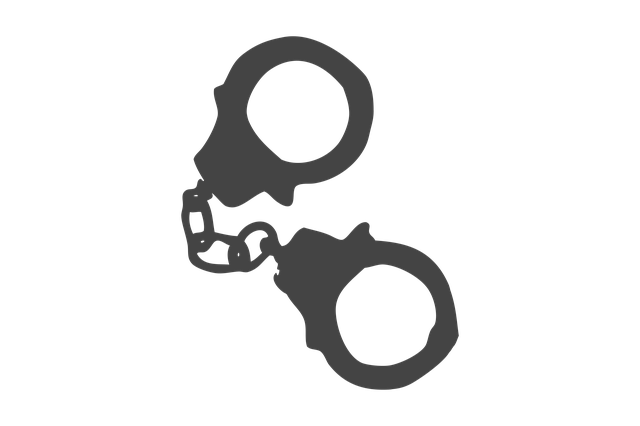When facing criminal charges, individuals are often overwhelmed and unsure of what steps to take next. In this article, you will learn how to create compelling content for a criminal defense attorney’s website blog. By understanding the needs and concerns of individuals facing criminal charges in Utah, you can create informative posts that explain complex legal concepts in a clear and accessible manner. These posts will showcase your expertise and experience, setting your firm apart from the competition. Additionally, you will discover the importance of addressing common legal concerns directly, providing reassurance and guidance to potential clients.
Criminal Charges

This image is property of pixabay.com.
Understanding Criminal Charges
Criminal charges refer to legal accusations made against an individual for committing a crime. When a person is charged with a crime, they are facing potential legal consequences, including imprisonment, fines, probation, and loss of rights and privileges.
Types of Criminal Charges
There are various types of criminal charges, ranging from minor offenses to serious felonies. Some common types of criminal charges include:
- Misdemeanors: These are less serious offenses, such as petty theft, public intoxication, or disorderly conduct.
- Felonies: Felonies are more serious crimes, including murder, robbery, or drug trafficking. These offenses are punishable by significant imprisonment and can have long-term consequences.
- White-collar crimes: These crimes are typically non-violent offenses committed in a business or professional setting, such as fraud, embezzlement, or insider trading.
- Sex offenses: Sex offenses encompass a range of crimes, including sexual assault, rape, or child pornography.
- Drug offenses: Drug offenses involve the illegal possession, distribution, or manufacturing of controlled substances.
- Violent crimes: Violent crimes include offenses such as assault, battery, homicide, or domestic violence.
Consequences of Criminal Charges
The consequences of criminal charges can significantly impact an individual’s life. Some of the potential consequences include:
- Imprisonment: Depending on the severity of the crime, individuals convicted of criminal charges may face incarceration in a prison or jail facility.
- Probation: Instead of imprisonment, a judge may order probation, where the individual must comply with certain conditions, such as regular check-ins with a probation officer or attending counseling.
- Fines and restitution: Criminal charges often result in fines, which must be paid to the court. Additionally, the individual may be required to pay restitution to the victim for any damages or losses incurred.
- Loss of rights and privileges: Depending on the nature of the crime, a conviction can result in the loss of certain rights and privileges, such as the right to vote, own firearms, or hold certain professional licenses.
The Legal Process for Criminal Charges
When facing criminal charges, individuals go through a legal process that involves several stages. Understanding this process is essential for individuals accused of crimes and their defense attorneys.
Arrest and Booking
The legal process for criminal charges begins with the arrest of the accused individual by law enforcement officers. After the arrest, the individual is taken to a police station or other designated facility for booking. During booking, personal information is collected, fingerprints and photographs are taken, and the individual is informed of their charges.
Arraignment and Plea
After booking, the accused individual goes through an arraignment hearing. During the arraignment, the charges are formally presented, and the individual is given an opportunity to enter a plea. They can plead guilty, not guilty, or no contest.
Pre-Trial Proceedings
Following the arraignment, pre-trial proceedings take place. This includes the exchange of evidence between the prosecution and defense, known as discovery. Both parties may also file motions to suppress evidence, dismiss the case, or request a change of venue. Plea negotiations can occur during this stage as well.
Trial
If the case proceeds to trial, the prosecution presents their case against the accused before a judge or jury. The defense has the opportunity to challenge the prosecution’s evidence, present witness testimony, and provide legal arguments in support of their client’s innocence. After both sides have presented their case, the judge or jury deliberates and reaches a verdict.
Sentencing
If the accused is found guilty, sentencing occurs. The judge determines the appropriate punishment, taking into account factors such as the severity of the crime, the individual’s criminal history, and any mitigating circumstances. Sentencing can include imprisonment, fines, probation, or a combination of these.

This image is property of pixabay.com.
Building a Strong Defense
When facing criminal charges, it is crucial to have a strong defense strategy. An experienced criminal defense attorney can help in building an effective defense by undertaking several key tasks.
Importance of a Criminal Defense Attorney
Having a knowledgeable criminal defense attorney is essential to navigate the complexity of the legal system. They can provide guidance, protect the individual’s rights, and advocate for the best possible outcome.
Gathering Evidence
One of the attorney’s primary responsibilities is to gather evidence to support the defendant’s innocence or cast doubt on the prosecution’s case. This can involve reviewing police reports, analyzing forensic evidence, and interviewing potential witnesses.
Interviewing Witnesses
Witness testimony can be critical in a criminal defense case. A defense attorney will interview witnesses, assess their credibility, and prepare them for trial testimony. This can help challenge the prosecution’s version of events and present alternative narratives.
Analyzing the Prosecution’s Case
A defense attorney will carefully review the evidence presented by the prosecution to identify any weaknesses or inconsistencies. They will challenge the admissibility of evidence obtained unlawfully or through violations of the defendant’s rights.
Developing a Defense Strategy
Based on the evidence and circumstances of the case, a defense attorney will develop a defense strategy. This can involve presenting an alibi, arguing self-defense, challenging the credibility of witnesses, or asserting other legal defenses.
Common Criminal Defenses
There are several common criminal defenses that defense attorneys may employ, depending on the circumstances of the case. Some of these defenses include:
Self-defense
Self-defense is a legal defense that can be used when an individual uses force to protect themselves from harm. The defense argues that the accused’s actions were justified based on the belief that they were in immediate danger.
Alibi
An alibi defense asserts that the accused was not present at the scene of the crime when it occurred. This defense relies on providing evidence, such as witness testimony or documentation, to prove the accused’s whereabouts at the time of the offense.
Mistaken Identity
Mistaken identity defense argues that the accused was wrongly identified as the perpetrator of the crime. This defense may involve presenting evidence that the witness making the identification was unreliable or that there is reasonable doubt regarding the accused’s involvement.
Insanity Defense
The insanity defense involves asserting that the accused should not be held criminally responsible for their actions due to a mental illness or defect. This defense requires providing expert testimony to establish the presence of a mental condition and its impact on the accused’s ability to understand right from wrong.
Negotiating Plea Deals
In some cases, it may be advantageous to negotiate a plea deal rather than proceeding to trial.
Understanding Plea Bargains
A plea bargain is an agreement between the prosecution and the defense, where the accused agrees to plead guilty or no contest to a lesser charge or to accept a reduced sentence in exchange for avoiding a trial and potential harsher penalties.
When to Consider a Plea Deal
Individuals facing criminal charges often consider plea deals when the evidence against them is strong, or the potential consequences of a conviction at trial are severe. The decision to accept a plea deal should be made in consultation with a defense attorney, considering the specific circumstances of the case.
Advantages and Disadvantages of Plea Bargains
Plea bargains can have advantages, such as reducing the risk of a harsher sentence if convicted at trial, saving time and costs associated with a trial, and providing more certainty in the outcome. However, they also have disadvantages, including admitting guilt, waiving the right to appeal, and potentially facing collateral consequences in the future.
Consequences of a Conviction
A conviction for criminal charges can result in several consequences that can significantly impact an individual’s life.
Imprisonment
One of the most severe consequences of a conviction is imprisonment. Depending on the nature and severity of the crime, individuals can face incarceration for varying lengths of time.
Probation
Instead of imprisonment, a judge may impose probation as part of the sentence. Probation requires the individual to comply with specific conditions set by the court, such as regular check-ins with a probation officer, attending counseling, or refraining from engaging in criminal activities.
Fines and Restitution
Convicted individuals are often ordered to pay fines as a form of punishment. Additionally, they may be required to provide restitution to the victim to compensate for any damages or losses incurred as a result of the offense.
Loss of Rights and Privileges
A conviction can result in the loss of certain rights and privileges. These can include the right to vote, own firearms, hold certain professional licenses, or live in certain housing communities.

This image is property of pixabay.com.
Alternative Sentencing Options
In some cases, alternative sentencing options may be available as an alternative to traditional imprisonment.
Diversion Programs
Diversion programs are typically offered to first-time or non-violent offenders. These programs aim to address the underlying issues that contributed to the criminal behavior and provide an opportunity for rehabilitation.
Community Service
Community service involves performing unpaid work for a specified number of hours in the community. This serves as an alternative to imprisonment and allows individuals to make amends for their actions while contributing positively to society.
House Arrest
House arrest, also known as home confinement or electronic monitoring, involves restricting an individual’s movements to their residence except for authorized purposes, such as work or medical appointments. This allows individuals to serve their sentence in the comfort of their home while maintaining their employment and family obligations.
Drug Rehabilitation
For individuals facing drug-related charges, drug rehabilitation programs can be an alternative to imprisonment. These programs focus on treatment, counseling, and support to address substance abuse issues and reduce the likelihood of reoffending.
Juvenile Criminal Charges
Juvenile criminal charges differ from adult criminal charges in several significant ways.
Differences in the Juvenile Justice System
The juvenile justice system is designed to address the unique needs and circumstances of young offenders. It focuses on rehabilitation rather than punishment and aims to prevent future criminal behavior.
Rights of Juvenile Defendants
Juvenile defendants have many of the same constitutional rights as adult defendants, such as the right to an attorney, the right against self-incrimination, and the right to due process. However, the application of these rights may vary slightly within the juvenile justice system.
Rehabilitation and Intervention Programs
The juvenile justice system emphasizes rehabilitation through various intervention programs. These programs may include counseling, substance abuse treatment, educational support, and mentoring to help young offenders develop positive skills and behavior.
The Role of Prosecutors
Prosecutors play a crucial role in the criminal justice system, representing the government and advocating for the charges against the defendant.
Role and Responsibilities of a Prosecutor
Prosecutors are responsible for gathering evidence, interviewing witnesses, filing charges, and presenting the case against the defendant in court. They have the power to negotiate plea bargains and recommend sentencing to the judge.
Building a Case Against the Defendant
Prosecutors build their case by collecting evidence, interviewing witnesses, examining forensic evidence, and presenting their findings to the court. Their goal is to prove the defendant’s guilt beyond a reasonable doubt.
Victims’ Rights
Victims of crimes have certain rights in the criminal justice process to protect their interests and support their recovery.
Rights of Crime Victims
Victims have the right to be notified of court proceedings, to be present and heard during hearings, and to be protected from intimidation or harassment. They also have the right to restitution and to be informed of any plea bargain negotiations.
Support Services for Victims
Various support services are available to crime victims, including counseling, legal assistance, and victim advocacy organizations. These services aim to provide emotional support, help navigate the legal process, and ensure victims’ rights are upheld.
The Appeal Process
If an individual is convicted of criminal charges and believes there have been errors in the legal process or the outcome of the trial, they may have the right to appeal their conviction.
Grounds for Appeal
Appeals can be based on various grounds, including errors in the admission or exclusion of evidence, legal errors by the trial judge, misconduct by the prosecution, or ineffective assistance of counsel.
Filing an Appeal
To initiate an appeal, the convicted individual must file a notice of appeal within a specified timeframe, usually within a few weeks or months after the conviction. The process then involves presenting legal arguments to an appellate court, which will review the case for errors.
Appellate Court Proceedings
During appellate court proceedings, both the defense and prosecution will present their written arguments, known as briefs. The appellate court will review the briefs, examine the trial record, and hear oral arguments before making a decision regarding the appeal.
Legal Aid for Criminal Charges
Individuals facing criminal charges who cannot afford to hire a private defense attorney are entitled to legal aid.
Options for Low-Income Individuals
Low-income individuals can seek legal aid through various avenues. This can include public defenders, pro bono services provided by law firms or legal clinics, or access to justice programs that offer free or reduced-cost legal assistance.
Public Defenders
Public defenders are attorneys employed by the government to provide legal defense to those who cannot afford to hire private counsel. They are assigned to individuals who qualify for their services based on income guidelines.
Pro Bono Services
Many law firms and legal organizations offer pro bono services, where attorneys volunteer their time to provide free legal representation to individuals facing criminal charges. Pro bono services help bridge the gap in access to justice for those unable to afford legal fees.
Impact of Criminal Charges on Immigration
Criminal charges can have severe consequences for individuals who are not U.S. citizens or who are in the process of obtaining or maintaining legal immigration status.
Deportation and Removal Proceedings
Conviction of certain crimes can lead to deportation or removal proceedings for non-citizens. Immigration authorities may initiate proceedings to remove the individual from the country based on the criminal offense committed.
Cancellation of Removal
Cancellation of removal is a discretionary form of relief that allows certain non-citizens facing removal or deportation to remain in the United States if they meet specific eligibility requirements. A criminal conviction can make an individual ineligible for cancellation of removal.
Consequences for Visa and Green Card Applications
Criminal charges can have adverse effects on visa and green card applications. Immigration authorities will carefully consider an individual’s criminal record when determining the eligibility and admissibility for immigration benefits.
Conclusion
Facing criminal charges is a serious matter that requires careful navigation of the legal process. Understanding the different types of charges, the potential consequences, and the available defense strategies is crucial. Working with an experienced criminal defense attorney can help individuals build a strong defense, negotiate plea deals when appropriate, and advocate for the best possible outcome. It is essential to consider the long-term implications of a conviction and explore alternative sentencing options when available. Additionally, understanding how criminal charges can impact immigration status can help non-citizens make informed decisions and seek appropriate legal assistance.



